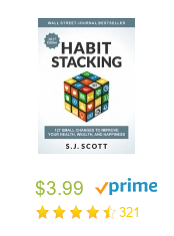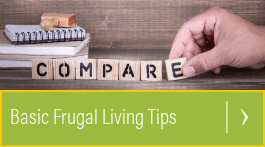
7 Tips For Assessing Your Own Financial Health

How To Improve Your Financial Wellness
You probably get regular checkups from your dentist and doctor. Even cars and pianos require regular tune-ups. However, most individuals fail to do the same for their financial health. While there are experts that can analyze your finances, most of us are entirely capable of measuring our own financial health. Nevertheless, we either don't think about it or choose to avoid it.
Determining the financial health of a company requires looking at several things. The same is true for your own finances. Do you need some tips for assessing your own financial health? Check out these seven tips!

1Determine Your Net Worth
Your net worth is the number you're left with after subtracting your debt from your assets. The primary examples of assets are cash and other securities, the current market value of your personal property, and the equity in your home. Essentially, all of your debt is your liability. It's the balance remaining on your credit cards, automobile loan, mortgage, and student loans. Any other money you owe would be included.
Note that high net worth isn't everything. You could have a painting worth $1 million on your wall but still be struggling to pay your bills. Your cash flow is important, too.

2Determine Your Cash Flow
Consider how much money you're spending each month compared to the amount you're receiving. Tally your household income and subtract your spending. Exclude any amounts you're saving or investing.
A larger, positive cash flow provides financial breathing room. It also gives psychological comfort. A negative cash flow suggests that you're getting deeper into debt each month.

3Know Your Savings Rate
Divide your monthly savings by your income. Include any contributions to your retirement accounts, too. Most financial experts recommend a 15% savings rate.
Obviously, a greater savings rate will result in more savings. If you're saving less than 15%, strive to save more. Increasing it by just 1-2% each month will result in a healthy savings rate in the short term.

4Assess Your Insurance Premiums
Different situations require different types of insurance. Ask yourself a few questions. This will help determine the types of insurance you need.
Ask yourself all the "what if" questions. This way, you'll have the necessary answers. Protecting your home, health, and income and securing valuable assets are sensible places to start.

5Check Your Emergency Fund
Could you weather the loss of a job, a major car repair, or any of life's other unpleasant surprises? Experts recommend an emergency fund equivalent to three to six months of living expenses. That might seem like a tall order, but you can chip away at it a little at a time.

6Calculate Your Expected Retirement Value
There are plenty of calculators that will enable you to extrapolate the value of your nest egg well into the future. Are you on schedule to retire with adequate financial resources? If you're unsure, make it a point to calculate your expected retirement value now.

7Be Prepared For Future Major Expenses
Is your car nearing the end of its lifespan? Are major educational expenses coming? If these things are happening anytime soon, are you in the position to handle them? Your answers to these questions will reveal the health of your financial situation.

Pay close attention to your financial health. Putting a priority on your finances will result in choices that enhance your financial well-being. Follow the above tips and be in better control of your finances.
About Author
Jackie Wing
GET THE FREE MAGAZINE DELIVERED STRAIGHT TO YOU:









































